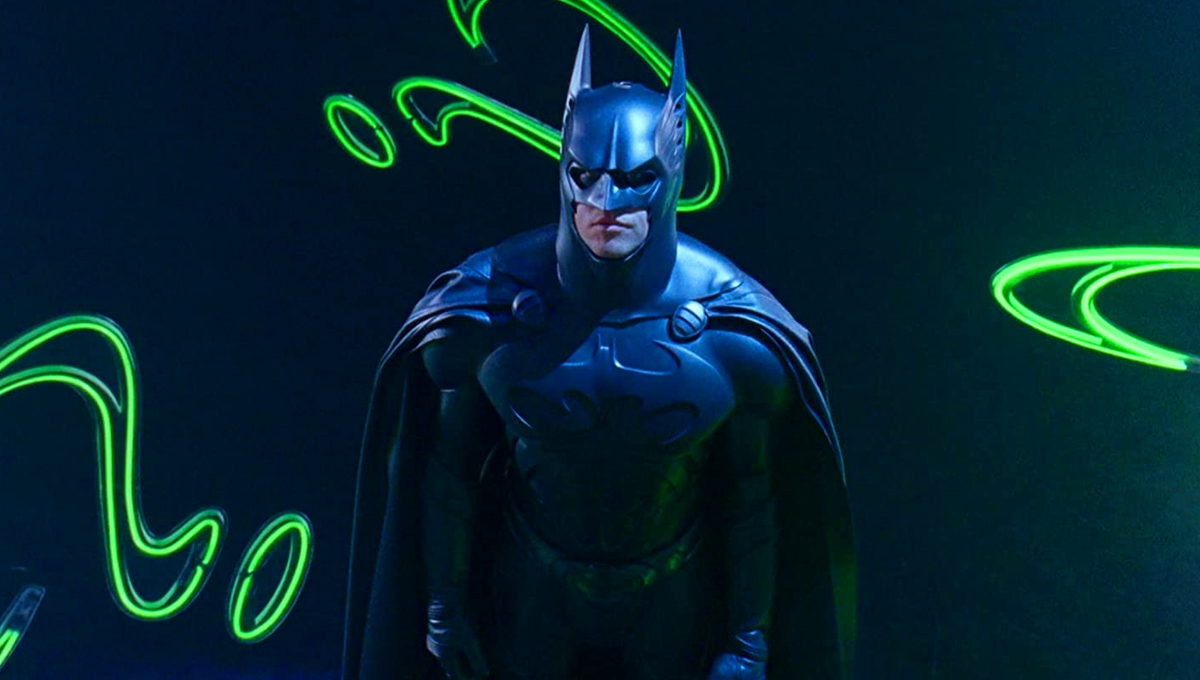Val Kilmer is back in the public conversation. It’s easy to see why after the premiere of the documentary Val, a new release from Amazon Studios and A24. Melancholic and wistful, the film documents Kilmer’s eclectic career as a rising movie star in the 1980s and ‘90s, and his more recent battle (and victory over) cancer. Hence the film must must talk about his time as Bruce Wayne in 1995’s Batman Forever.
Yet as good as the doc is, its impressionistic view of the actor’s life tends to leave some of his sardonic musings and general conviviality off the screen. Relying mostly on the vast reams of camcorder footage he saved over the course of his life, the movie observes as much as it enters Kilmer’s mind. Luckily, the prodigious artist also recently released a memoir about his various exploits, Val Kilmer: I’m Your Huckleberry.
Affecting an authorial tone that’s more conversational and intentionally scattershot—he introduces his book as though the reader is about to enter a “pinball machine” inside his mind—the book covers some of the same ground as the documentary (and glosses over some of the doc’s most painful elements, too). The memoir also provides an outlet for Kilmer’s personal musings about his career and private life, including, yes, his time as the Batman.
When it comes to discussing the Dark Knight, the actor is entirely gracious to the character and Batman’s biggest fans—noting how much he admires their enthusiasm at Comic-Cons. However, when it came to accepting the role in the mid-1990s after Michael Keaton bowed out of playing the character, Kilmer is more frank 25 years on than your typical junket interview soundbite.
“I was buzzed about being Batman but hardly for artistic reasons,” Kilmer wrote. “With two franchises going—Batman and The Saint—I could start an artists’ community, write poetry and plays, and become the wild auteur I saw as my destiny.”
However, after accepting the Batman Forever role without reading the script, his illusions about playing the Caped Crusader were quickly shattered. He ultimately surmised the part is a trap, “and the trap was the suit.” Weighing close to a hundred pounds and essentially deafening him, the suit left Kilmer feeling isolated and looking for solace from the special chaise lounge they set up for him.
“The chair became my friend, my crush, and my only comfort,” said Kilmer. “Oh, how I adored the chaise longue!” It allowed him to recline without having to bend over in all that rubber. The world’s alleged greatest martial artist couldn’t even lean back in a typical La-Z-Boy. Noting the other best part about the role being “half the Hollywood community” bringing their kids to set to meet him in costume, Kilmer otherwise has few positive thoughts about the production. In fact, it was watching those kids where he realized they didn’t care who was in the suit, remarking he might as well have been Betty White.
Kilmer’s struggles with acting through the costume apparently informed some of his tension with director Joel Schumacher—whom he speaks of otherwise in glowing terms in his memoir—and his decision to not continue with the role. The documentary, in fact, is more explicit in getting him to concede he chose to not do another Batman film after Batman Forever because of that experience, as opposed to scheduling conflicts (Kilmer cites Heat on the page as part of the reason he was unavailable for Batman & Robin, even though Heat filmed nearly two years before B&R went before cameras).
As for Batman Forever itself, Kilmer is affectionately dismissive of its quality. In one telling anecdote, he recalled agreeing to show the movie to his children a few years after its release, but he had to drive into town from his New Mexico ranch to buy it because he didn’t own a VHS copy in his home. After the film started, his children quietly shuffled out one-by-one within the first 20 minutes, and Kilmer found himself watching the rest of the movie alone “like a chump.”
His review? “I mean, it’s so bad, it’s almost good.”
While Kilmer expresses admiration and affection for the Batman character, the actor’s interests clearly lie far from typical comic book fare. More inclined to quote American poets like Robert Frost, Walt Whitman, and especially Mark Twain than Bill Finger or Stan Lee, Kilmer spends much more time romanticizing what Huckleberry Finn did to his childhood imagination than Detective Comics (although in the documentary he does fondly recollect sitting in Adam West’s Batmobile as a child).
But Kilmer said this of the Caped Crusader: “Batman has fired the imaginations of countless kids while raking in billions for the comic book and film industries. You gotta hand it to Batman. He’s far greater than any actor attempting to play him.”
